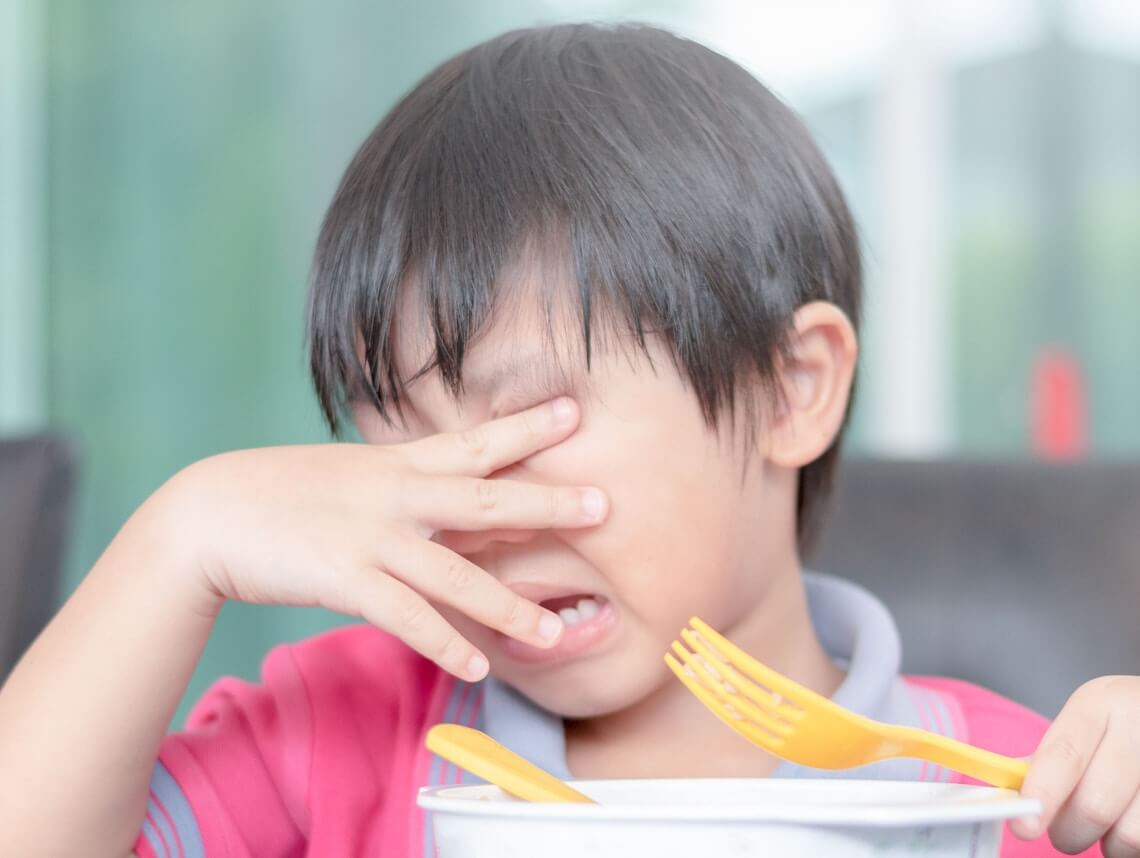As a parent, receiving any dire medical diagnosis for your child is overwhelming and heartbreaking. You do everything you can to learn the new medical terms, while your head swims in questions. You look for the best treatment options and for ways to improve your child’s quality of life. And, when the condition can be exacerbated by specific types of foods or medications — such as with esophagitis — you try to move heaven and Earth to eliminate them from your child’s life. But what, exactly, is esophagitis in children? How can you recognize symptoms that something is awry?
What is esophagitis?
Esophagitis is inflammation that may damage tissues of the esophagus — the muscular tube that delivers food from your mouth to your stomach. One of the most common causes of the condition is gastrointestinal reflux disease (also known as GERD or acid reflux). In healthy individuals, the valve at the opening of the stomach remains closed when a person is not eating. However, if a person suffers from acid reflux, this valve opens when it should be closed, causing the fluids in the stomach to spill into the esophagus, irritating its lining and causing inflammation.
Causes of Esophagitis in Children
While esophagitis is often caused by GERD, some children may experience esophagitis for other reasons, such as part of a bacterial or viral infection, compromised immunity, secondhand smoke, obesity, or as a side effect of certain medications. If it occurs with regularity, your child could experience complications, such as swallowing difficulties, chronic sore throat or heartburn, ulcers, and — in a worst-case scenario — a severe narrowing of the esophagus.
Symptoms of Esophagitis in Children
The symptoms of esophagitis may vary from child to child. The most common ones include:
- Sore throat
- Hoarse voice
- Difficulty swallowing
- Pain when swallowing
- Food getting stuck in their throat
- Coughing
- Chest pain — particularly behind the breastbone, when eating
- Acid regurgitation
- Heartburn
- Decreased appetite
- Abdominal pain
- Feeding difficulties
- Failure to thrive
Diagnosing Esophagitis in Children
If your child’s pediatrician suspects esophagitis, they will conduct a physical examination, as well as take x-rays. They’ll also likely recommend an esophageal manometry — a procedure in which a small tube is inserted into the child’s nose to reach the esophagus. This is done to measure the esophagus pressure and muscle coordination.
Pediatric Esophagitis Treatment
Once a diagnosis has been confirmed, the pediatrician will determine its cause. If it’s due to food allergies, your child’s diet will have to be modified. This often involves eliminating the most common allergenic foods, including:
- Cow’s milk
- Eggs
- Shellfish
- Nuts
- Wheat
- Soy
On the other hand, if the condition is caused by an underlying medical condition, your child’s pediatrician will likely prescribe antibiotics, corticosteroids, and/or a proton pump inhibitor. Since there are different triggers for esophagitis, treatment will be tailored specifically for your child. If it involves diet restrictions, it’s crucial for everyone in your household — and anyone who may help care for your child — to be aware of them.
Contact Care Options for Kids For Pediatric Home Health Care
It can be hard to balance your time between work, home, and caring for a child. That’s why our team of skilled professionals at Care Options for Kids is here to help.
Our home health care services offer support in the comfort of your home. We refer loving and competent nurses to provide customized care for families — from a few hours a day to around-the-clock supervision. Contact us directly to speak with a home health care professional or request a free in-home assessment. Together we can determine the best plan of action to keep your loved ones happy and healthy.
If you are considering pediatric home health care services, contact the caring staff at Care Options for Kids. Call today at (888) 592-5855.






